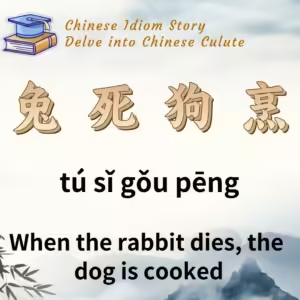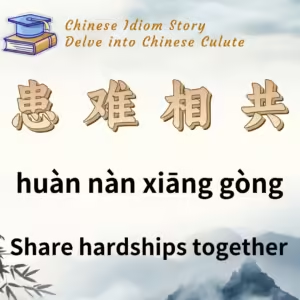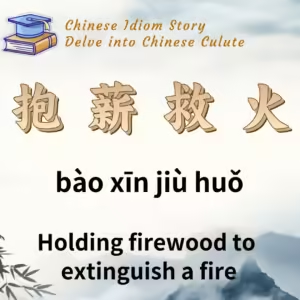
Chinese Idiom: 卧薪尝胆 (Wo Xin Chang Dan)
English Translation: Lie on firewood and taste gall
pīn yīn: wò xīn cháng dǎn
Idiom Meaning: This idiom signifies enduring hardship and self-discipline in pursuit of one’s goals. It embodies a spirit of perseverance and determination to overcome past failures and strive for future success.
Historical Source: From Records of the Grand Historian: Biography of King Goujian of Yue.
Idiom Story:
During the Spring and Autumn period, there were two neighboring states, Yue and Wu, located along the eastern coast of China. Yue was a relatively undeveloped state that began to grow stronger towards the end of the Spring and Autumn period. When Goujian, the son of King Yunchang of Yue, ascended the throne, his kingdom harbored a long-standing grudge against the Wu state.
In 496 BC, shortly after Goujian took the throne, King Helu of Wu seized the opportunity to invade Yue. Goujian’s forces suffered a severe defeat, and the Wu king was killed in battle. His son, Fu Chai, inherited the throne and vowed to avenge his father’s death. Three years later, Fu Chai led an army against Yue and besieged Goujian at Kuaiji Mountain (modern-day Shaoxing, Zhejiang).
To survive, Goujian’s advisor, Fan Li, suggested that he adopt a humble attitude and offer peace to Fu Chai. Goujian and his wife were taken as captives to Wu, where they endured humiliation and mistreatment. After three years of servitude, Fu Chai, believing Goujian to be submissive, allowed him to return to Yue.
Once back in Yue, Goujian vowed to never forget the humiliation he suffered. He engaged in rigorous self-discipline, determined to strengthen his kingdom. He hung a piece of gall bladder above his sleeping area to remind himself of his past failures, tasting its bitterness during meals to reinforce his resolve. He slept on firewood instead of a soft bed, often lamenting his defeat at Kuaiji Mountain.
Goujian also worked alongside his people, sharing in their labor and hardships. He participated in agriculture, and his wife wove cloth. They maintained a frugal lifestyle, treating virtuous scholars with respect and generously hosting guests. Goujian actively supported the poor and regularly visited families in distress.
Through ten years of diligent labor and military training, Goujian rebuilt his state. In 473 BC, he defeated Wu and avenged the past humiliation. Following this victory, Goujian led his troops north across the Huai River, forging alliances with powerful states like Qi and Jin, ultimately establishing himself as a dominant ruler of the Spring and Autumn period.
The story of Goujian’s resilience and determination in the face of adversity gave rise to the idiom “卧薪尝胆,” which serves as a reminder of the power of perseverance and the importance of learning from past mistakes to achieve future success.






